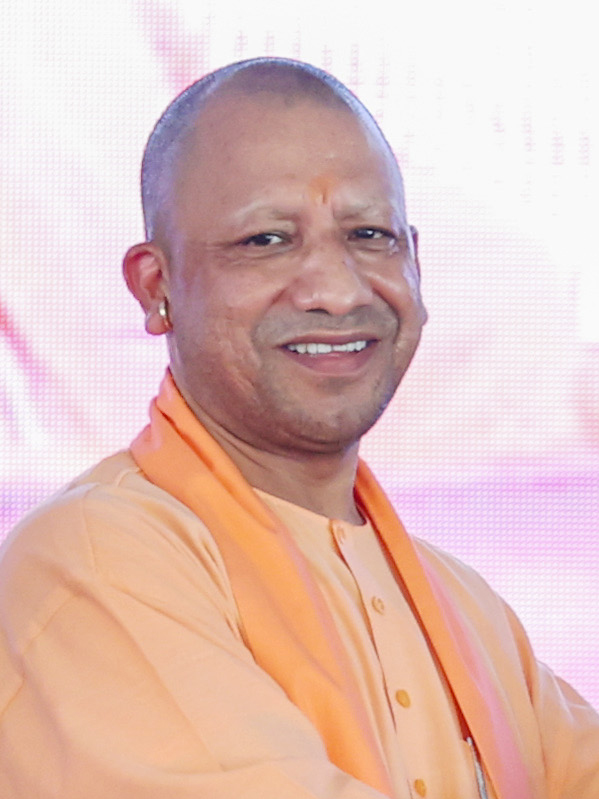 Early Times Report Early Times Report
LUCKNOW, Sept 18: Chief Minister Yogi Adityanath, while addressing a press conference on Thursday, hailed the recent GST reforms as a "Diwali gift" from Prime Minister Narendra Modi to the nation. He said, "The decision will provide relief from inflation, strengthen trade, and simplify the lives of citizens. Effective from September 22, coinciding with the beginning of Sharadiya Navratri, these reforms will directly benefit consumers, farmers, businesses, and ordinary families."
The Chief Minister expressed gratitude to Prime Minister Narendra Modi and Union Finance Minister Nirmala Sitharaman for the landmark decision. He noted that the tax reforms announced by the Prime Minister on Independence Day have shown results within just 20 days, with the decisions taken at the 56th GST Council meeting on September 3 now coming into effect. According to him, this is not merely a tax change but part of a broader campaign to boost India's economy.
The Chief Minister highlighted that before the rollout of GST in July 2017, a web of complex taxes-VAT, sales tax, service tax, excise duty, entry tax, and entertainment tax-burdened consumers and businesses alike. He added, "GST unified these into a "One Nation, One Tax" system. Now, the biggest reform within GST itself has been implemented. The earlier four-tier structure of 5%, 12%, 18%, and 28% has been simplified to just two slabs-5% and 18%. While a 40% rate will continue on select luxury items, the removal of the 12% and 28% slabs will bring significant relief to the common man. From kitchens to agriculture, housing construction to highways, and industry to trade, every sector stands to benefit."
Outlining consumer gains, the Chief Minister said household items such as milk, curd, cheese, shampoo, toothpaste, soap, bicycles, and baby products will now be taxed at only 5% or exempt altogether. This will ease daily expenses, enhance purchasing power, and stimulate demand in the market, which in turn will boost production.
Calling it historic for farmers and rural India, he said the tax on tractors, tyres, pesticides, and irrigation equipment has been cut to 5%, reducing farming costs and increasing productivity. This, he emphasized, will not only bring relief to farmers but also give a significant push to the rural economy.
The Chief Minister announced that significant decisions have also been taken in the healthcare sector. GST on personal life and health insurance has been completely abolished, while taxes on medicines, oxygen, and testing kits have been reduced. This, he said, will make treatment more affordable and provide direct relief to citizens. He added that the government has also eased the burden on vehicle purchases-reducing GST on cars and bikes from 28% to 18%, a direct cut of 10%. This move will not only enhance the purchasing power of ordinary families but also give a strong boost to the automobile industry, driving up production, creating new jobs, and energizing the economy.
Highlighting support for students, the Chief Minister said GST on notebooks, pencils, and other educational materials has been fully abolished, a major relief for parents and children alike. At the same time, he pointed out that while consumers and students have been given relief, the tax on harmful products like tobacco and pan masala has been raised to 40%.
The Chief Minister underlined the government's commitment to improving the ease of doing business. Tax registrations have been made auto-approvable, refunds are being processed faster, and risk-based compliance and labor reforms have been implemented. He noted that before GST, India's tax collection stood at just Rs 7 lakh crore. Today, it has surged to Rs 22.8 lakh crore, while the number of taxpayers has risen from 6.5 million to 15.1 million.
According to him, this historic increase in tax revenues over the past decade has powered transformative changes across the country's infrastructure and economy. He cited that the number of airports has risen from 74 in 2014 to 160 today, metro rail networks have expanded from 248 km to 1,013 km, and the number of Vande Bharat trains has grown to 144. Similarly, defence production has nearly tripled-from Rs 46,000 crore to Rs 1.27 lakh crore-while defence exports have seen an exponential rise from Rs 686 crore to Rs 23,600 crore.
The Chief Minister emphasized that tax reforms have also directly strengthened welfare schemes. Direct Benefit Transfer (DBT) payments, which stood at just Rs 7,000 crore in 2014, have now grown to ?6.83 lakh crore, reaching millions of the poor.
He said, "25 crore people have been lifted out of poverty, 4 crore families have received houses under the Pradhan Mantri Awas Yojana, and 80 crore citizens are receiving free rations through the Pradhan Mantri Garib Kalyan Anna Yojana."
|
